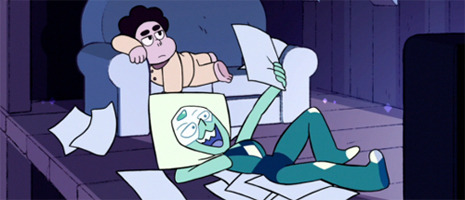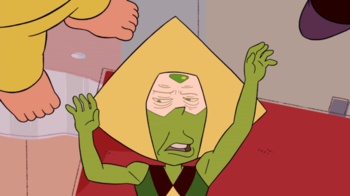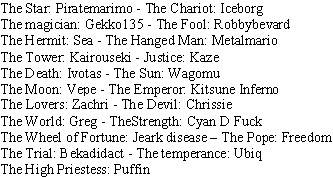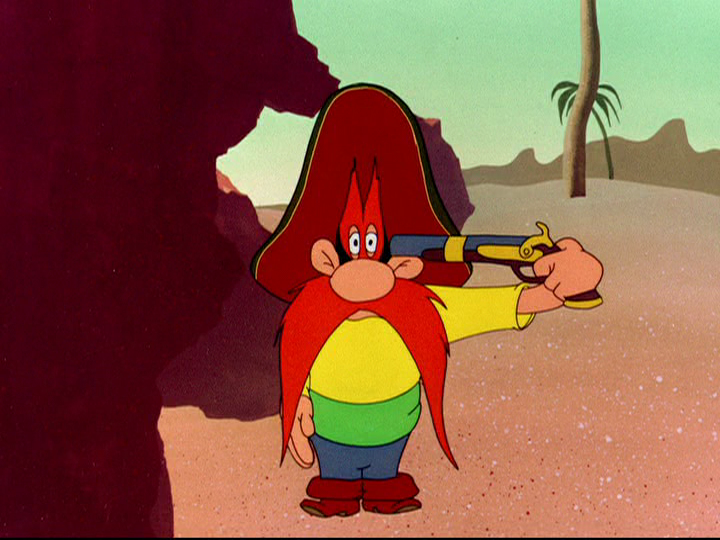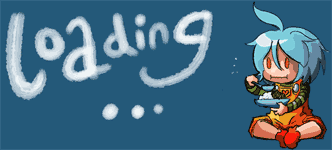I may as well be the first one to say something. I suppose I'll edit this post as necessary.
So let the last word be the first word.
Every Gamergate conversation has somebody coming in months or weeks late going "well, Gamergate has a point" when no, Gamergate is a fucking tainted movement, tainted from the outset, malicious in its genesis.
Zoe Quinn, the target of a deliberate and organized character assassination by a jealous ex, 4chan, then death threats that chased her from her home, is just one in an outrageously long line of women in the industry that have been targeted for violence by people who hate feminists, and the criticism of the boys club the gaming community can often be. The hashtag movement GamerGate, spawned by the very people who started this harassment, continues to be lead in part by her ex, and has led to prominent women in the field leaving the industry entirely, under a rain of rape and death threats and nude photo leaks, and most recently a threatened school shooting at the Utah State University, where Anita Sarkeesean planned to speak. Naturally, the GamerGate Truthers present themselves as victims. The Reagan Culture Wars continue.
Gamergate is bullshit. I'm not going to give the Gamergate movement the benefit of the doubt, because it doesn't deserve it. Nor will I explain its intentions myself, because the idea that journalistic integrity in games can be achieved by harassing small, crowdfunded and kickstarted indie developers instead of the big corporate entities that control this notoriously cozy industry is to laugh - to laugh long, and hard.
What Is Gamergate, and Why? An Explainer for Non-Geeks
Until recently, you might have lived a life blissfully unaware of the online #Gamergate movement. But last week, computing giant Intel pulled its ads from an independent game-development site thanks to the gaming lobby. Now that major companies are taking sides, it's time to figure it out. Let us be your guides.
What is #Gamergate? "#GamerGate" is an online movement ostensibly concerned with ethics in game journalism and with protecting the "gamer" identity.
"Ostensibly"?
Even regarded generously, Gamergate isn't much more than a tone-deaf rabble of angry obsessives with a misguided understanding of journalistic ethics. But there are a lot of reasons not to regard the movement generously.
How did Intel get itself involved?
Intel removed its ads last week from Gamasutra, a niche website for video game developers, at the behest of #Gamergate, which took particular offense to an article by journalist Leigh Alexander arguing that "gamers," in the traditional sense, are becoming irrelevant as "angry young men" grow up and the medium evolves to include new audiences.
That article is over a month old, though.
Right. #Gamergate actually began in August as a pernicious attack on one female game developer, Zoe Quinn, and her sex life. Quinn has been the victim of death threats and harassment since she began trying to publishDepression Quest, a text-based game partially based on her own experience with depression, in 2013. Last month, the New Yorker attempted to explain why Quinn and her game inspire such outrage among gamers —Depression Quest is not a "real game," it's "just words," its portrayal of depression is too personal to be relatable—but it's hard not to look at the last several weeks of chatter in the gaming community and not come to the conclusion that it's about the fact that she's a woman.
Why do you say that?
The harassment against her reached a fever pitch in August after an ex-boyfriend, Eron Gjoni, wrote a series of blog posts alleging that Quinn had cheated on him with five other men, some of whom worked in games or games journalism. In gamer social media circles, a conspiracy immediately took root: Quinn had definitely fucked those five guys, gamers decided (they even turned it into a joke about the burger chain) and she'd done it to get publicity for her games. Quinn's address and phone number were made public shortly afterward, and the threats against her became so intense that she left her house and started couch-surfing. Last week, the New York Times reported she hasn't been back since.
So Intel pulled its ads from Gamasutra because of a bunch of people attacking a woman after her boyfriend claimed she'd cheated on him?
Well, not quite. In September, the attacks on Quinn coalesced into an organized campaign, coordinated on 4chan, Reddit, YouTube and in various IRC channels. Gamers came to a consensus that publicly harassing a woman over her sex life was a bad look. They quickly pivoted to focus on corruption in games journalism.
They started with Kotaku writer Nathan Grayson, one of the alleged "five guys," who stood accused of writing positively about Quinn while engaged in a sexual relationship with her.
But Grayson never reviewed Depression Quest. He once wrote half a sentence about the game,before his relationship with Quinn ever started, but that's it. Critics of Quinn and Grayson have also raised concerns about this Kotaku article—it was written before they started dating.
Despite numerous news sources, including Kotaku itself,
as an example of journalistic corruption months later.
(Kotaku and Gawker are sister sites, both owned by Gawker Media LLC.)
Surely the gaming community is not entirely made up of misogynists and angry idiots?
Near the end of August, a significant chunk of the gaming press declared itself fed up with the type of gamer who would make threats against Quinn and other prominent women in games, including controversial feminist critic Anita Sarkeesian.
"There has been so much hate. So many angry words, so many accusations, over…what? Video games? Women in video games? People who write about video games? It would be absurd if it hadn't forced people out of their homes for fear of their personal safety," wrote Kotaku's Luke Plunkett.
A number of sites took the opportunity to write about a demographic change in the gaming community: The death of the "gamer," essentially. Headlines like "The End of Gamers," "'Gamers' Are Over," and "We Might Be Witnessing the Death of an Identity" appeared on game news sites.
Is that where the hashtag/name #Gamergate came in?
Yes: The #Gamergate movement was born—borrowing a hashtag coined by conservative _Firefly_actor Adam Baldwin—in response to this widespread repudiation of the term "gamer" and the scummy layer of misogyny it had picked up.
You said #Gamergate participants believe they're fighting for video game journalism ethics.
Right. #Gamergate participants believe that game journalism has been corrupted—there are too many writers who maintain friendships or other close relationships with game developers. Never mind for now that the game developers who are most often complained about are people like Zoe Quinn—independent, crowd-funded, and frequently from underrepresented identity groups—#Gamergate's mission (publicly, anyway) is to convince games writers to adopt the same ethical standards as "real journalists."
What does that mean?
It's never been clear what that would mean. That's because #Gamergate has never really been about ethics, although some sincere participants have taken up that discussion.
Chat logs released soon after the "Five Guys scandal" broke reveal the movement was focused on destroying Zoë Quinn first, reforming games reporting second.
Amid discussing the size, shape and smell of Quinn's vagina and what to do with leaked nude photos of her, plotters from various 4chan message boards drop gems like "i couldnt care less about vidya, i just want to see zoe receive her comeuppance."
From another conversation:"I kind of want to just make her life irrepairably [sic] horrible …"
"but what if she suicides …"
"Good."
Eventually, (slightly) cooler heads prevailed, and the trolls who would soon form #Gamergate shifted their goal from destroying Zoë Quinn to something ostensibly about journalistic ethics.
"The more you try to attack her directly, the more she gets to play the victim card and make a bunch of friends who will support her because, since she has a vagina, any attack is misgony [[I]sic]," one of them reasoned.
So the ethics complaints are a red herring?
Many #Gamergate participants truly believe that they are fighting an important fight against corruption in game journalism. But to an outside observer, it's bizarre that they identify the greatest threat as the small, independent, crowdfunded developers, and not the huge profitable game companies that advertise on game sites.
What about the "death of the gamer" stuff?
Ethics aren't the only thing #Gamergate is concerned with. As the movement made the shift from ad hominem attacks to insisting that its only interest in Quinn was as an example of nepotism and corruption in the gaming industry, it also began co-opting the language of social justice movements and of journalism to legitimize its complaints. Although their movement targets women specifically, #Gamergaters insist they speak for a victimized "demographic," and that anyone who opposes misogyny while making generalizations about gamers must be a hypocrite. In their letters to advertisers, they argue that every article calling "gamer" a dead or outdated identity represents a conflict of interest.
That sounds a bit muddled.
Gamergaters demand to be seen simultaneously as a 70-million-strong market force, too big for the industry to ignore, and as a persecuted minority. They warn advertisers it's "racist" and "sexist" when a gaming site dares to point out that most angry gamers are young, white, and male. At the same time, they argue that angry, young, white males are those sites' "target audience," and writers offend them at their own risk. It's ironic, then, that #Gamergate is also spamming advertisers with links to Leigh Alexander's_highly controversial_ piece arguing that the stereotypical gamer is no longer the only audience available to the industry. The epiphany that #Gamergate is fiercely resisting, that games can be by and for people outside the "target demo," smells a lot like something advertisers love: potential new customers.
Is #Gamergate all white men?
No: Some women and people of color have expressed varying degrees of support for some components of the movement's aims. But its most fervent proponents are so desperate to maintain the illusion that they represent an oppressed majority (as if that makes any sense) that they've created copious fake accounts to artificially inflate the size of the movement, and even designed a cartoon female mascot named Vivian James to advance the idea that #notallwomen care about female representation in games.
Has it been successful?
Despite Gamergate's self-contradictory positions, it has managed to get some of what it wanted. Prominent women who make and write about games have been chased out of the industry. Kotaku has banned its writers from contributing to developers on Patreon, a crowdfunding website popular with women in games—notably Gamergate targets Zoë Quinn and Anita Sarkeesian (editor-in-chief Stephen Totilo later clarified that the policy applies to any direct financial support of developers).
And then there's the most recent kerfuffle with Intel.
Doesn't Intel see that it's throwing in its lot with some pretty gross misogyny and ignorance?
Well—after Gaters hailed Intel's decision as a victory for their letter-writing campaign, "[Operation Disrespectful Nod](http://webcache.googleusercontent.com/search?q=cache%3Ahttps%3A%2F%2Fgithub.com%2FGamerGateOP%2FGamerGateOP%2Ftree%2Fmaster%2FOperation Disrespectful Nod&oq=cache%3Ahttps%3A%2F%2Fgithub.com%2FGamerGateOP%2FGamerGateOP%2Ftree%2Fmaster%2FOperation Disrespectful Nod&aqs=chrome..69i57j69i58.1651j0j4&sourceid=chrome&es_sm=91&ie=UTF-8)," the company appeared to realize it had been duped by gamers—and fake gamers—into supporting a misogynist movement.
"[W]e recognize that our action inadvertently created a perception that we are somehow taking sides in an increasingly bitter debate in the gaming community. That was not our intent, and that is not the case … Intel does not support any organization or movement that discriminates against women. We apologize and we are deeply sorry if we offended anyone," the company said in a statement.
But it stuck by its decision to pull the ads.
Meanwhile, actual ethical problems in games journalism—like corporate influence, for instance—remain unaddressed.
That's probably because the most popular explanation of what #gamergate supporters want has nothing to do with reforming the business of games writing. It's this: They "just want to play games," without complicating things by discussing how those games portray women and minorities, or how the industry treats those same groups. Those discussions are fine, they feel, but please don't force them to confront those inconvenient issues or "shove them down our throats."
Whether they realize it or not, they've just had what's probably their first real encounter with the concept of "privilege." For a very long time, being part of the "target demo" has meant being able to enjoy games made for (and, for the most part, by) people like you, without ever seeing those games interrogated from another perspective.
Projects like Anita Sarkeesian's "Tropes vs. Women in Video Games" inspire such vitriol precisely because they've pierced that bubble of privilege and started conversations that gamers can't conveniently ignore. And that can be hard to accept, especially when you identify with a group that has traditionally been at the bottom of the (white, male) social pecking order.
The vile behavior and disingenuous mission of #gamergate makes it easy to forget that, although it may be sheltering a few real sociopaths, we're mostly talking about very young men—kids, in a lot of cases. As Leigh Alexander pointed out, gaming discourse has made it this far because "most of the people who drove [the game industry's] revenues in the past have grown up."
That doesn't excuse the damage #gamergate has done, but it does offer a thread of hope that this current crop of angry young men will grow up, too, and learn to enjoy a brave new gaming world that isn't all about them.
We can hope, right?



